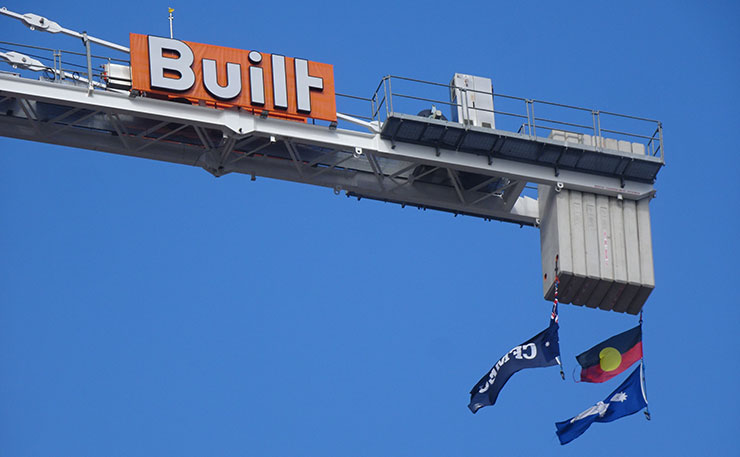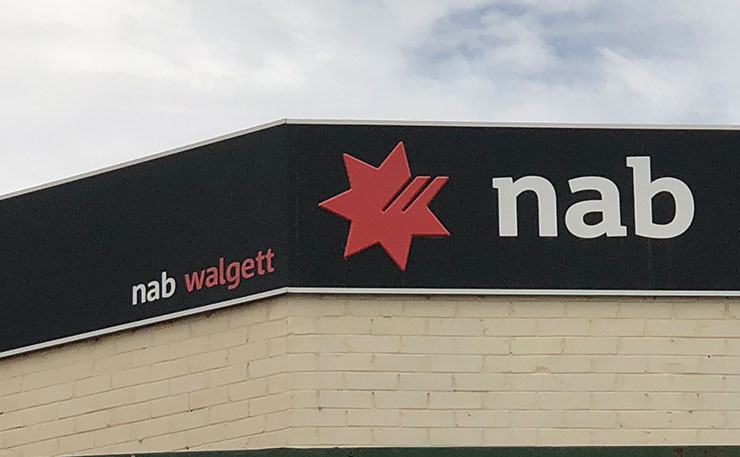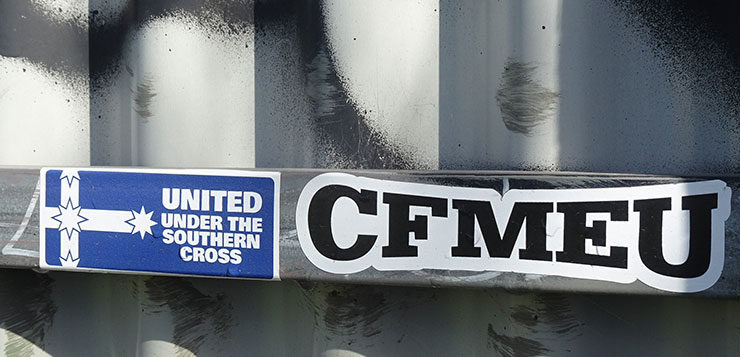Australia has one set of rules for white collar crime, and a whole other set of rules (and sanctions and penalties and public floggings) for blue collar crimes… particularly when a union is involved. Lawyer Alana Heffernan weighs in on the obvious hypocrisy.
In the last week, officials of the Construction, Forestry and Maritime Employees Union (CFMEU) have faced significant allegations of engaging in inappropriate and thuggish conduct. The police aren’t ready to say if it meets a criminal threshold (as stated by the Victoria Police Chief Commissioner) and no-one is alleging misappropriation of members’ money.
No-one wants criminality in any industry. However, this needs to be balanced against the proposition that people with criminal histories should be able to gain and maintain employment. As pointed out by the national secretary of the CFMEU, the construction industry is one where people are afforded second chances in life and it is a common landing place for people with criminal histories.
Some will inevitably continue to commit crimes and others will always be accused of criminality based on their backgrounds and associations. This is not unique to the construction industry.

It has been difficult to distinguish between criminal conduct, criminal association and criminal history in most of the coverage of the allegations against the CFMEU. There is obviously wrongdoing, but it is difficult, at this stage, to ascertain whether the allegations extend to every branch of the federation.
It requires a thorough legal investigation, separate and aside from a media investigation.
Nevertheless, the CFMEU has been told it can’t coordinate an independent legal investigation and it can’t clean itself up. It has even been told it can’t administer itself. The government has, before any real investigation, determined to put the entire federation into external administration.
Juxtapose this with the finance industry.
The findings out of the 2018 Banking Royal Commission were explosive. It was proven that several of the Big 4 knowingly took money from dead people (and continued to do so even after the Commission); the Commonwealth Bank charged customers $118 million for no services in return; NAB institutionalised a program of bribes; Westpac laundered money for terrorists; and all were engaged in the destruction of livelihoods and lives. The behaviour was, and is, systemic, widespread, and showed incomprehensible rot in the industry.
They were given a belting, told to start paying back the unearned fees, implement some structural and administrative changes, pay some fines (the banks, not the individuals involved), and we all moved on.
Were any of the banks threatened with deregistration, or banned from political donations or put under external administration? No, not a single one.
So why the different treatment?
Why do we always view and respond to white collar and corporate crimes so differently to how we deal with crimes committed by blue collar people and their institutions?

The ramifications of the crimes proven to have been committed by the banks and their senior management are far-reaching and incomparable. They stole from clients, they laundered money, they caused irreparable damage to people’s finances and lives. Yet, five years on, the punishment has not been a sliver of what the CFMEU has faced before its allegations have even been investigated or substantiated. Allegations that, if proven, relate to a single industry and are not capable of having the institutional embedment, reach and damage of those committed by the banks.
The bank representatives, in their suits and ties, are polite, articulate and soft-spoken. Conversely, the CFMEU officials, with their black t-shirts, tattoos, swearing and ‘f*ck you’ attitude appear rough and intimidating. In short, the senior management teams of the big banks, being the perpetrators of their crimes, look a lot prettier and a lot less threatening than the CFMEU officials who are currently facing allegations.
But we must stop reacting to allegations, and crimes, based on what the perpetrator looks like or how they speak or whether they meet our standards when it comes to manners and respect. We must look at the substance of the allegations and the reach and effect of the crimes allegedly being committed.
Funnily, it is this balanced approach to how we treat people that trade unions fight for on behalf of their members.
If we can trust the banks to fix institutionalised fraud, theft, bribery and laundering terrorist money for themselves, then we should give the national office of the CFMEU an opportunity to show us how it can address the allegations levelled against its branches and their officials.
If it demonstrates that it isn’t up to the task, only then should we look to alternative measures.
Donate To New Matilda
New Matilda is a small, independent media outlet. We survive through reader contributions, and never losing a lawsuit. If you got something from this article, giving something back helps us to continue speaking truth to power. Every little bit counts.




